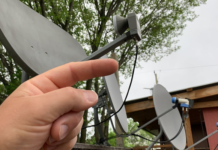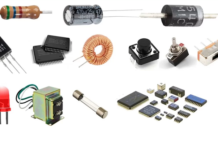
Electric Vertical Take-Off and Landing (eVTOL) aircraft are revolutionizing the aerospace sector, similar to how electric vehicles have disrupted the automotive industry. Over the past 12 years, the eVTOL industry has magnetized an investment of $12.8 billion1, spurring the development projects of around 200 companies worldwide. These aircraft are versatile and particularly suited to urban transportation. The advent of eVTOL signifies the rise of aerial taxis offering greener, faster, and more efficient transfers from city locales to airports, ready to replace existing helicopter services. Additionally, eVTOL aircraft minimize noise and air pollution and potentially function around the clock. Furthermore, eVTOL aircraft are designed to deliver both vertical and horizontal propulsion. Being smaller and lighter than conventional aircraft, eVTOL designs must incorporate robust materials to ensure safety and performance.
Every design choice matters in the flourishing world of eVTOL aircraft. This new frontier of aerial urban mobility brings a surplus of challenges to engineers, including managing power and data in harsh flight environments. At the heart of this challenge lies developing a proficient battery management system (BMS). This critical component guarantees peak performance, safety, and the maximal duration of the aircraft’s energy source. Here, we explore the crucial role power and signal integrity play in BMS for eVTOL designs.
BMS in eVTOL: Why it Matters
The primary power source for eVTOL aircraft is large lithium-ion batteries, similar to those used in electric vehicles. However, the demands of eVTOL services take the challenge of power management to new heights, quite literally. When the aircraft is thousands of meters up in the air, any battery or power system fault can have severe implications.
The BMS is critical in maintaining the battery’s health by continuously monitoring and controlling parameters such as current, voltage, and temperature. This ensures optimal performance and efficiency and contributes to passenger safety. An error or failure in the BMS can lead to dangerous situations, such as sudden drops in altitude due to power loss. Therefore, every component of the BMS, including interconnects, must be chosen and designed with care.
Selecting the Ideal Connectors
Selecting the correct connectors for eVTOL battery management systems is a multifaceted task that requires considering various vital factors. The space-constrained nature of eVTOLs, which rely heavily on electrical propulsion, necessitates compact components that take up minimal board space and maintain a low profile. This compactness should also extend to the connectors because eVTOL battery packs often comprise numerous Lithium-Ion cells. Compact connectors with dense contact arrangements can streamline data acquisition, aiding efficient battery management.
Weight considerations are equally crucial due to strict weight constraints in eVTOL designs. Both the fuselage and onboard components must be lightweight to maximize passenger or cargo loads, thereby boosting the aircraft’s operational efficiency. Besides size and weight, reliability and robustness are critical. For passenger safety, connectors must ensure a prolonged operational life without failure and withstand harsh conditions, including shocks, vibrations, and extreme temperatures.
Another significant consideration is electromagnetic interference (EMI) susceptibility. Given the proximity of these components to various electrical sources, EMI shielding is a must to prevent data quality degradation that could adversely affect the battery management system’s decisions.
In the cost-sensitive eVTOL industry, managing the bill of materials effectively is critical. Companies should favor Commercial Off-The-Shelf (COTS) products over custom-built components to keep costs in check while maintaining quality standards.
Speaking of quality, it’s important to work with connector suppliers that adhere to globally recognized quality standards. Given the dire consequences that minor production variations could lead to in the aerospace industry, ensuring complete output repeatability is nonnegotiable. Carefully considering these factors will ensure that safe, reliable, and efficient eVTOL solutions are delivered to the market.
Datamate Connectors: Ensuring Connection Integrity in eVTOL BMS
Harwin, and its Datamate connectors, stand out among connector suppliers who fit the above criteria. These high-reliability connectors are engineered for harsh conditions and are designed to withstand vibration, shock, and temperature extremes common in eVTOL environments. Harwin Datamate Connectors offer 100G shock, 40G bump, and 10G vibration resistance, can carry 3A of current—3.3A on an individual contact—and are able to operate under temperatures as extreme as -55°C to +125°C. They feature Harwin’s patented four-finger beryllium copper contact technology, which provides strong mechanical and electrical resilience. This ensures connection integrity without data loss—a vital feature for maintaining accurate and reliable BMS functionality.
The small and lightweight design of Datamate connectors makes them an excellent choice for eVTOLs, where space and weight are significant design constraints (Figure 1). But don’t let their size fool you—their robustness and reliability are in no way compromised. These connectors can handle high levels of shock and vibration while functioning optimally.
-text-ad-en-1-updated.jpg?ver=m_nXy5VAXC88rZUp-aprsA%3d%3d)
Figure 1: The compact, lightweight Harwin Datamate 2mm-pitch Hi-Rel Connectors offer significant advantages for eVTOL designs, including a patented 4-finger design that enables interconnections to remain unaffected by even the most intense shocks, vibrations, and temperature extremes. (Source: Mouser Electronics)
The Datamate connectors also offer low EMI susceptibility, which is crucial for ensuring the quality of the data monitored and controlled by the BMS. With various available latching mechanisms, these connectors provide flexibility, allowing engineers to find the best match for the available space and operating conditions.
Conclusion
The eVTOL revolution is here, and it’s redefining urban mobility as we know it. As companies around the globe vie to get their aircraft in the sky, they must grapple with many complex design challenges, including the implementation of a reliable and effective BMS. Harwin’s Datamate connectors, with their compactness, lightweight design, robustness, and high reliability, offer an optimal solution for BMS interconnects, ensuring the safe and efficient operation of eVTOL aircraft. As we push the boundaries of technology and transportation, every component, every detail, and every design choice matters. Harwin is here to power the journey.


















